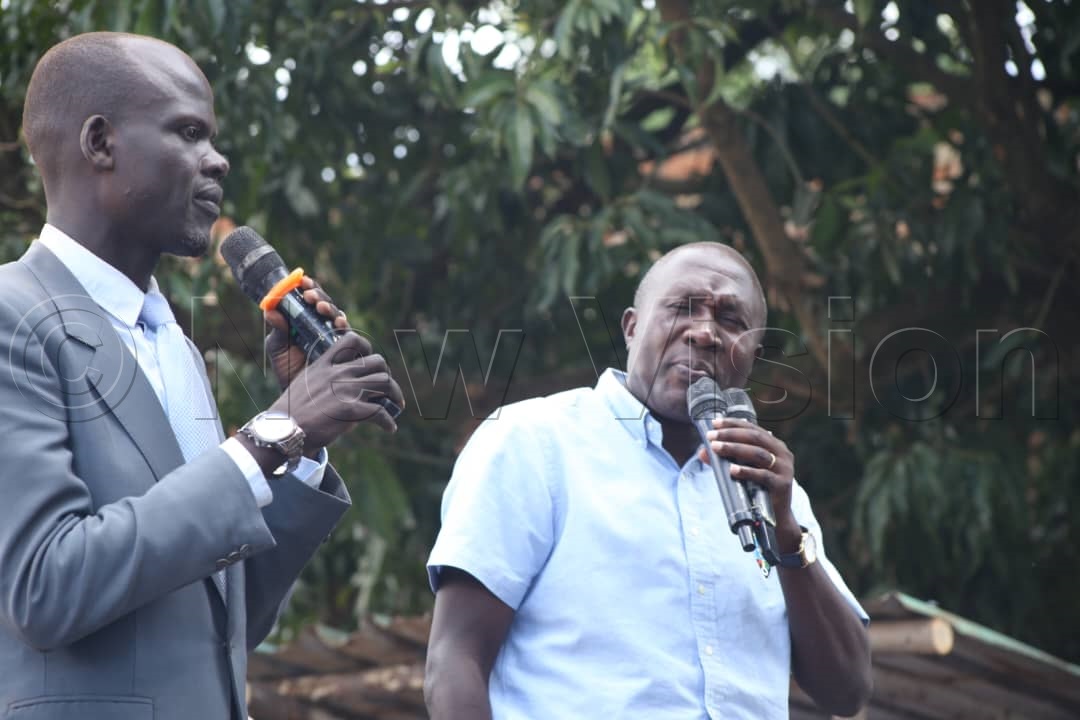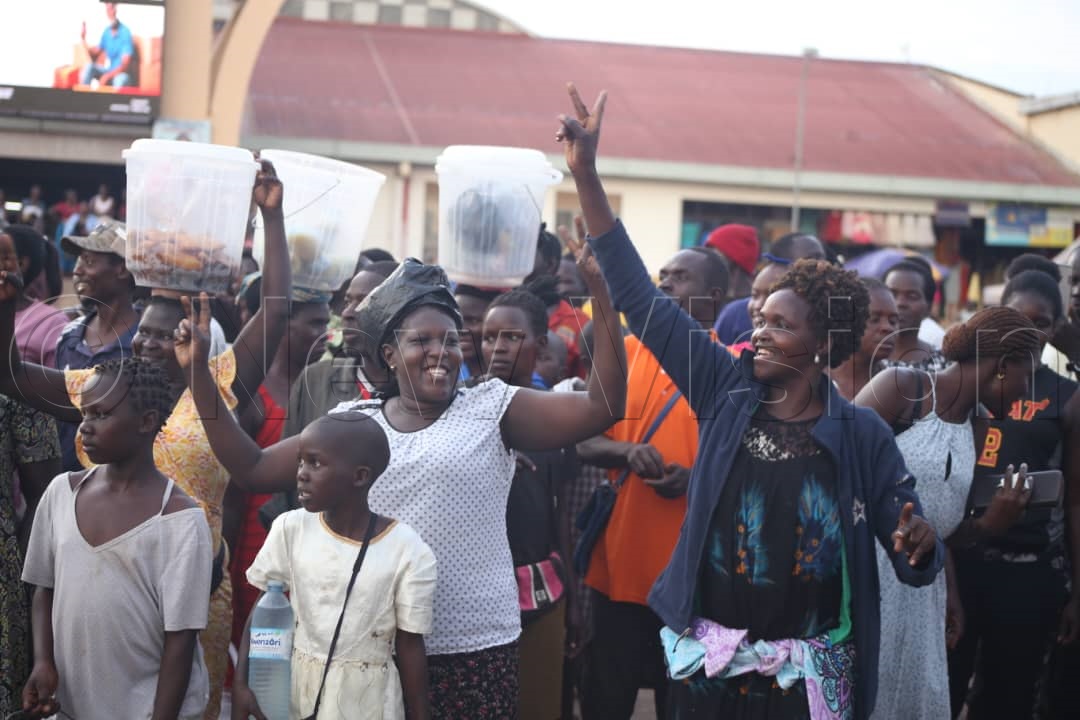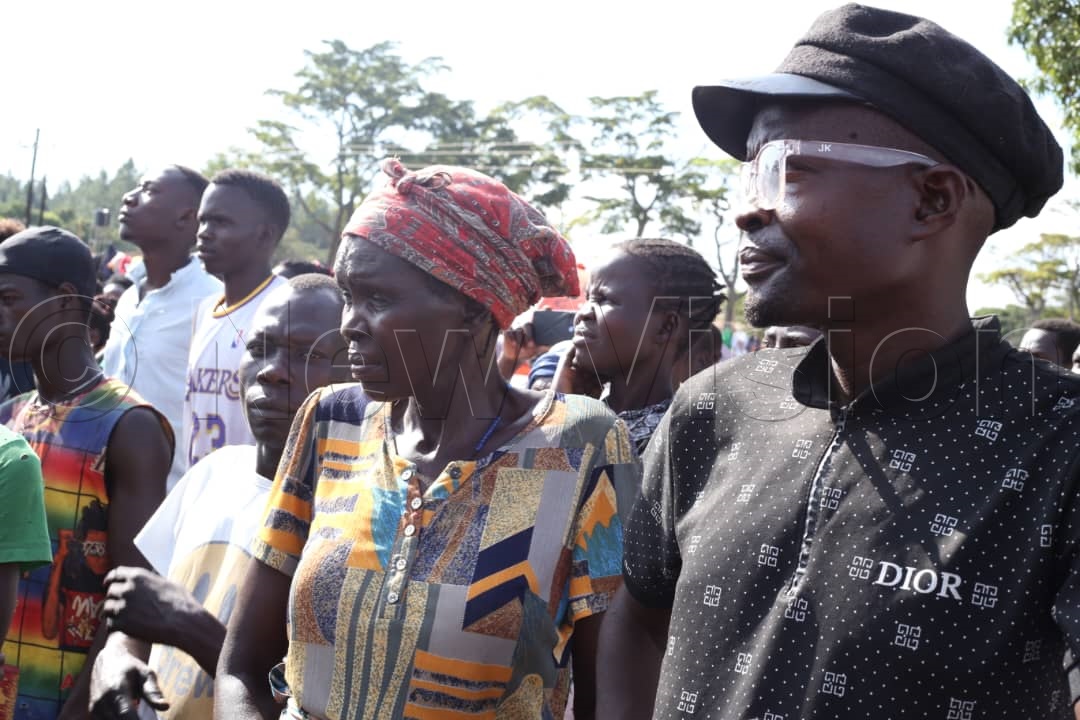Nandala Mafabi pledges to end the bodaboda debt trap
FDC presidential candidate Nathan Nandala Mafabi focused his message on what he described as one of the most overlooked economic injustices in Uganda’s informal sector: the predatory lending crisis affecting boda-boda riders.
FDC presidential candidate Nathan Nandala Mafabi addressing voters in Gulu at his campaign rally. (Credit: Alfred Ochwo)
_______________
The familiar buzz of motorcycles around Gulu may suggest a thriving city, yet for many riders it masks a deepening financial crisis.
Speaking to a massive crowd of supporters at Kaunda Grounds, FDC presidential candidate Nathan Nandala Mafabi focused his message on what he described as one of the most overlooked economic injustices in Uganda’s informal sector: the predatory lending crisis affecting boda-boda riders.
Addressing the youth who form the backbone of the transport industry, Mafabi dismantled the idea of supposed “easy ownership” promised by asset financing firms.
He argued that although the boda-boda business is naturally profitable, capable of sustaining households and supporting local economies, the prevailing financing models are structured to trap riders in long-term debt rather than supporting their journey towards independence.

Voters listening to Mafabi's address. (Credit: Alfred Ochwo)
The “4x” reality
“Every youth who acquires a motorcycle through these current loan schemes ends up paying four or five times the actual value of the bike,” Mafabi declared.
He broke down the calculations for the crowd, explaining that a motorcycle, which should cost a few million shillings, often ends up costing more than sh10 million by the time the loan is completed, if it is completed at all.
With interest charges disguised as daily or weekly “remittance fees”, riders work for years under the constant threat of repossession. If a rider falls ill or misses even a short period of work, they risk losing the motorcycle and all the payments already made.
A policy for ownership, not usury
Mafabi’s proposed solution is a restructuring of how young people access capital. He emphasised that he is not advocating for handouts but for fair financial practice. His plan involves replacing high-interest private financing with government-guaranteed loans at single-digit interest rates.

FDC presidential candidate Nathan Nandala Mafabi. (Credit: Alfred Ochwo)

Voters listening to Mafabi. (Credit: Alfred Ochwo)
He also encouraged riders to form SACCOS (Savings and Credit Cooperative Organisations) so they can use collective bargaining power to purchase motorcycles at import prices, thereby bypassing middlemen who inflate costs.
“This is about poverty reduction, not just transport,” Mafabi noted.
He said when riders pay a fair value for their motorcycles, they become owners within 12 to 18 months. Thereafter, the money they generate remains within Gulu, supporting food markets, paying school fees, and contributing to construction. At present, he said, that surplus is diverted to lenders in Kampala or overseas because of exorbitant interest charges.
The FDC presidential candidate appealed to the people of Gulu city to vote for him in the 2026 presidential elections so he can help save Ugandan youth from deepening poverty.
According to Mafabi, reforming the financing model would allow the boda-boda sector to evolve from a survival activity into a reliable engine of wealth creation for young people.
Bodaboda riders react
After the rally, New Vision spoke to several riders in Gulu city about his proposals.
David Okello at Gulu Main Market stage said, "He spoke the truth that many leaders refuse to say. Right now, I ride for a company in Kampala, not for myself. I pay sh15,000 every single day. If I get malaria and miss three days, they threaten to take the bike. By the time I finish paying next year, I will have paid almost sh9 million for a bike that costs less than half of that. If Mafabi can bring loans where we pay fair interest, then we can finally breathe. Right now, we are just working slaves."
Julius Ocen, who operates at Layibi Centre, explained that "I was at Kaunda Grounds and I heard him. The math is correct—the interest rates are killing the youth. But my question is, how will he force these private companies to lower rates? We have heard promises before in Gulu. When elections come, they promise us fuel subsidies and road repairs, but after voting, the dust covers us again. I agree with his plan, but I need to know how he will do it before I celebrate. Words are easy; changing the banking system is hard."
Brian Komakech of the Cereleno stage in Gulu city said, "This is the first time a candidate has treated the boda-boda business like a real economic sector. Usually, they just call us hooligans or use us for convoys. Mafabi is right—this business is profitable! If I didn't have to pay 5 times the value of the bike, I would have saved enough money to buy a second motorcycle and employ my brother. If he brings low-interest loans, he is not just helping us ride; he is helping us become businessmen. That is the development Gulu needs."